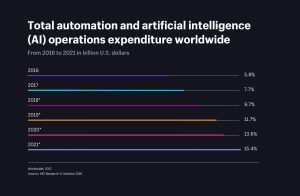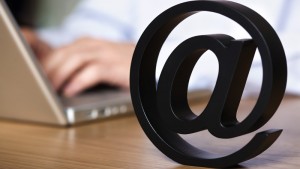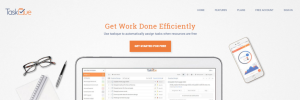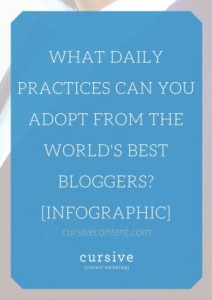by Gord Hotchkiss, Featured Contributor, (February 23, 2016)
If you ask publishing giant Elsevier, Alexandra Elbakyan is a criminal — a pernicious pirate.
If you ask the Lifeboat Foundation, or blogger P.Z Myers, or millions of students around the world, Alexandra Elbakyan is a hero.
Labels can be tricky things, especially in a world of disruption.
Elbakyan certainly doesn’t look like a criminal. You would walk right past her on a campus quad and think nothing of it. She looks pretty much like what you would expect a post-grad neuroscience student from Kazakhstan to look.
But her face is the face of disruption. And she’s at the receiving end of a lawsuit launched by Elsevier that, if you were to take it seriously, would be worth several billion dollars.
Just over a year ago, I wrote a column about the academic journal racket. The work of thousands of researchers is published by Elsevier and others and remains locked behind hugely expensive pay walls. Elbakyan, as a post-grad research student at a university that couldn’t afford to pay the licensing fees to gain access to these journals, got frustrated.
In a letter she wrote in response to the lawsuit, she elaborated on this frustration: “When I was a student in Kazakhstan University, I did not have access to any research papers. These papers I needed for my research project. Payment of 32 dollars is just insane when you need to skim or read tens or hundreds of these papers to do research. I obtained these papers by pirating them.”
Elbaykan was not alone in this piracy. “Later I found there are lots and lots of researchers (not even students, but university researchers) just like me, especially in developing countries,” she wrote. “They created online communities (forums) to solve this problem.
“To solve this problem”: There, in a nutshell, is the source of disruption. Elbakyan thought there had to be a more efficient way to facilitate this communal piracy and turned to technology, launching the Sci-Hub search portal in 2011. Depending on the donation of access keys from academics at institutions that had subscriptions to research publishers, Sci-Hub bypasses the paywall and locates the paper a researcher is looking for. It then delivers the paper and saves a copy for LibGen, a library of “pirated” papers that will continue to be freely available to future researchers. The LibGen database now has over 48 million papers available.
Is Elbaykan guilty of piracy? Absolutely — as it’s defined by the law. She makes no bones about the fact. She uses the term repeatedly in her own letter of defense.
But, in that letter, Elbaykan also appeals to a higher law: the law of fairness. She is not stealing from the authors of that research, who receive no compensation for their work from the publisher.
When Elsevier claims “irreparable harm,” the only harm that can be identified is to its own business model. There is no harm to academics, who are becoming increasingly hostile to the business practices of publishers like Elsevier. There is certainly no harm to fellow researchers, who now have open access to knowledge, helping them in their own work. And there is no harm to the public, who can only benefit from the more open sharing of knowledge among academics. The only one hurt here is Elsevier.
According to RELX’s (the parent company of Elsevier) 2014 annual report, the company raked in £ 2,944 million ($4.23 billion U.S.) from its various subscription businesses. The Scientific, Technical and Medical division (the same division that Elbaykan “irreparably harmed”) had revenues of £ 2,048 million ($2.94 billion U.S.) and a tidy little operating profit of £787 million ($ 1.13 billion US).
Poor Elsevier.
The question that should be asked here is not whether Elsevier’s business model has been harmed, but rather, does it deserve to live? According to that same annual report, the company helps “scientists make new discoveries, lawyers win cases, doctors save lives and executives forge commercial relationships with their clients.”
Actually, no.
Elsevier does none of those things. The information it deals in does those things. And that same information is finding a way to be free, thanks to people like Alexandra Elbaykan. Elsevier is just the middleman who is being cut out of the supply chain through technology.
The American legal system will undoubtedly side with Elsevier. The law, as it is currently written, defends the right of a corporation to do business, whether or not people like you and me deem that business ethical. But ultimately, we rely on our laws to be fair, and what is fair depends on the context of our society. That context can be changed through the forces of disruption.
Sometimes, disruption comes in the guise of a young post grad student from Kazakhstan.
MediaPost.com: Search Marketing Daily
(39)
Report Post







